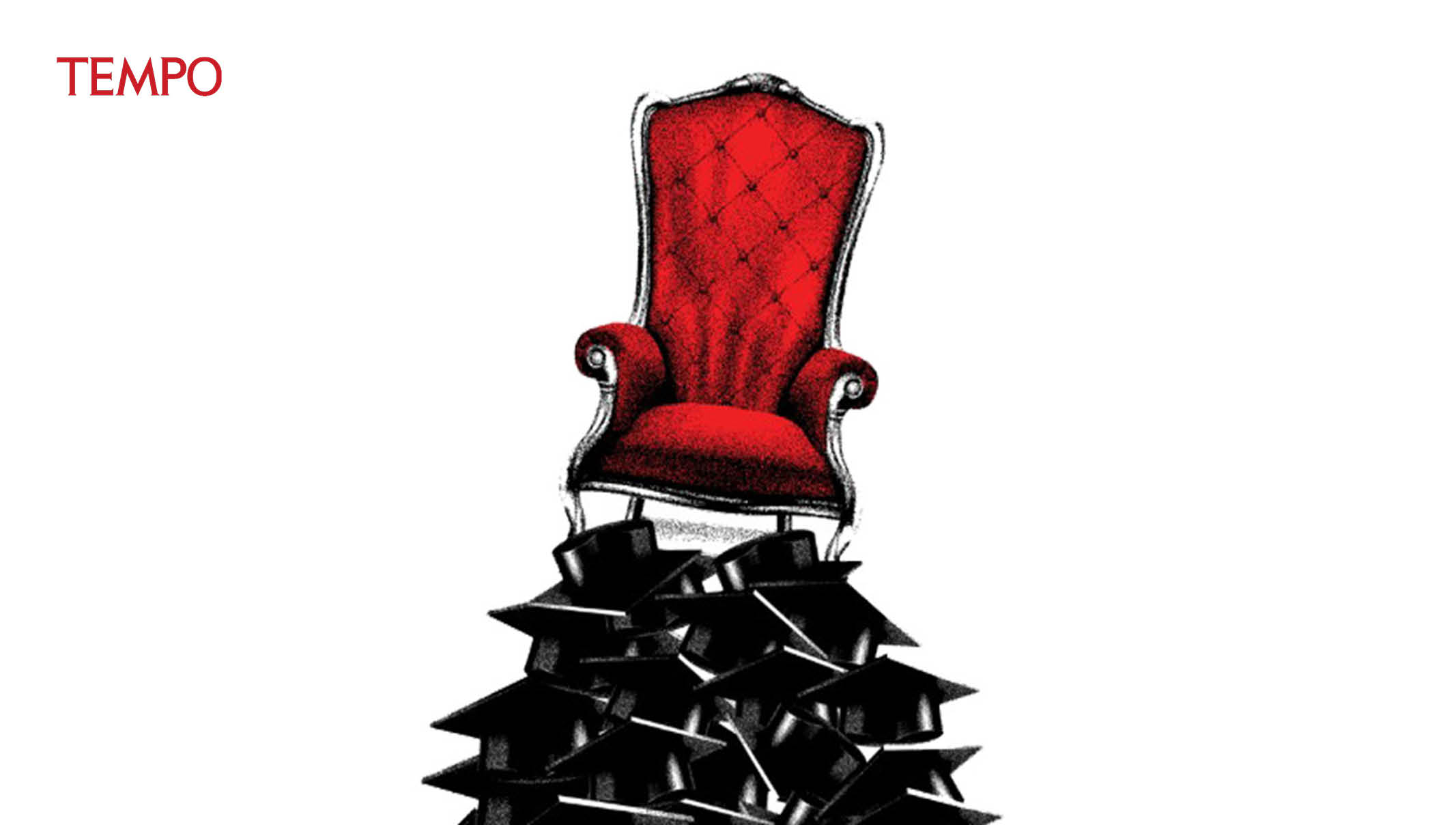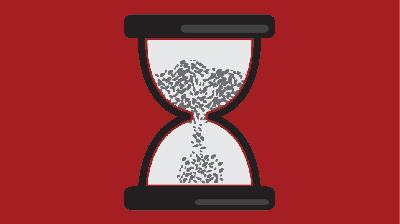The Craze for Bogus Professorships
Monday, July 8, 2024
Lecturers and politicians are manipulating the title of professor. They are colluding with assessors using predator journals.
arsip tempo : 174550056066.

THERE have been bogus professors in Indonesia since the Old Order regime. In 1958, the Attorney General’s Office detained a man claiming to be named Professor Djokosutomo M.A., founder of the Madjapahit University in Kebayoran Lama, Jakarta. At that university, he appointed himself president and professor. After questioning by prosecutors, he confessed that he was only a high school graduate. And the M.A, after his name, was short for Marto Atmodjo.
With this bogus title, Djokosutomo tricked 7,000 people who enrolled as students at Madjapahit University. From them, he received Rp75,000 per month—a large sum given that at that time the price of gold was only Rp86 per gram. As well as the students losing out, the world of education was impacted. Bogus professors give rise to imitation degrees. A falsehood will give birth to more falsehood.
Unfortunately, today, there are still fake professors around. They no longer use Djokosutomo’s method to obtain their titles, but by taking an academic back door. The Ministry of Education, Culture, Research and Technology regulated that one of the requirements for becoming a professor is to be the lead author in papers published in prestigious international scientific journals. These people cheated the system by taking the illegal route of publishing their works in predator journals—which publish papers without any peer review. Then they collude with assessors at the Education Ministry who are responsible for deciding whether they meet the requirements to become a professor.
This craze for professorships is a direct result of the government’s topsy-turvy way of thinking. For the last six years, the government has had the ambition for 20 percent of lecturers to be professors. The aim is to increase our poor academic ranking, which is low partly because as of 2022, only around 2 percent of lecturers were professors. Our education policy that measures everything quantitatively has resulted in the creation of a “market.” Those desperate to become professors meet with sellers of academic titles.
An investigation by this magazine found that 11 lecturers at Lambung Mangkurat University, Banjarmasin, South Kalimantan had become professors by taking a shortcut. For them, academic titles bring two advantages: recognition and money. By becoming professors, they achieve academic recognition and at the same time receive additional income from their university or through other positions in government.
The motivation of officials such as House of Representatives Deputy Speaker Sufmi Dasco Ahmad, who is now a professor at Pakuan University, Bogor, West Java, is clearly not economic. It seems that Dasco and People’s Consultative Assembly Speaker Bambang Soesatyo, who has put in a request for a professorship at Borobudur University, Jakarta, want to become professors so they are recognized as intellectuals.
For this type of person seeking to become a professor, perhaps they think the title will give them more prestige in the eyes of others. Psychologically, this fits in with the viewpoint all those who see professors as demigods to be worshipped. The word “prof” is seen as a valuable embellishment to be put on business cards. The more letters they have before and after their name, the more they feel they are intellectuals—even if the truth may be that they are not intellectual at all.
Whatever the motivation, this academic dishonesty damages our education system and tarnishes Indonesia’s reputation. According to Vit Machacek and Martin Srholec, two researchers from the Czech Republic, Indonesia is ranked number two for academic dishonesty, after Kazakhstan. This finding is based on their research into predator journals between 2015 and 2017. Last year, Nahuel Monteblanco, president of a Peruvian association of scientists, who also does research on academic dishonesty, referred to Indonesian researchers as “collaborators (who are) highly suspect.”
From the time of Djokosutomo to the present day, bogus professors have always been around and have become a disgrace to our academic system. The way to eradicate them, besides improving the system, is first of all to stop calling people “prof.” Even for real professors, unless it is for academic purposes such as inaugurations or promotion meetings, the terms “Pak” or “Bu” are much more egalitarian, while still showing respect.
And for the bogus professors, the term “prof” should be replaced by “pret”—from “kampret” (immature bat), an Indonesian derogatory remark.











